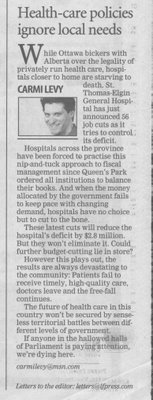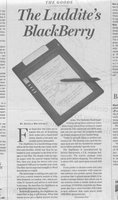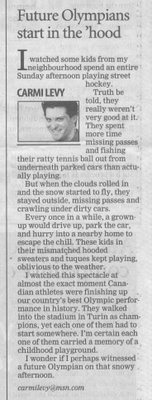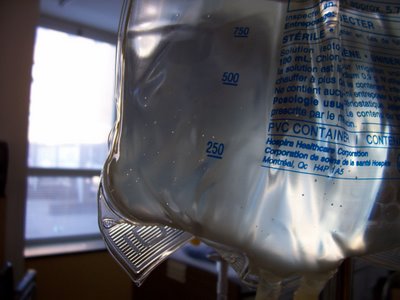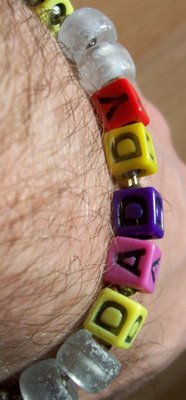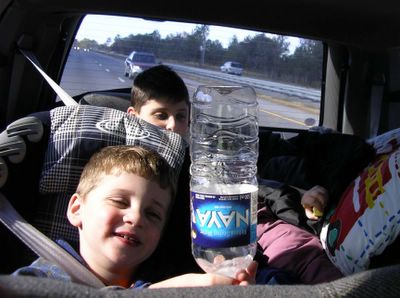I hate being away from home because it means fitful nights of sleep in strange hotels, food that doesn't agree with me and precious little time to hear the distant voices of the most important people in my life.
As hard as it is on me, I know it's infinitely worse on my wife and kids. My wife is stuck being a single parent, while our kids' routine is thrown off by my absence. It isn't fair, I know, but it's the deal we know we have to make if we want this career thing of mine to continue to grow. Still, it's hard to be a husband and a Dad when you're thousands of kilometers from home.
Every trip - this one was to Phoenix, Arizona for a symposium where I heard leaders of some of the top tech firms in North America share their vision with the investment community - always seems to generate an indelible image in my mind. This one was no different, but it came right at the end.
The taxi from the airport pulled up in front of the house. The temp was well below freezing, the sky was dark, and I shivered as I thought about the desert warmth I had left a mere few hours earlier.
Through the front window, I could see our daughter and youngest son turn their heads as they realized I was home. Their little forms quickly disappeared from the window and reappeared at the now-open front door. They danced in the doorway, waving at me and calling my name.
Taxi driver, apparently unfamiliar with the concepts of change and receipts, was taking his sweet time in the front seat. Still, our kids continued to dance, oblivious to the cold, happy that I was finally home.
By the time I finally made it up the walkway, they were hanging out the door and excitedly calling my name. It felt good to hold these squirming, happy little people as I came inside.
I wish the innocence of realizing that Daddy's home would never leave them, but I'm not so naive as to believe that time stands still for them, or for anyone, for that matter. As I stood in the hallway and listened to their excited chatter, I felt somehow blessed that I was able to enjoy even one moment like this with people who are so fundamentally a part of me.
Your turn: What does coming home feel like to you? If you wish, I hope you take the time to share your own coming home story - either here or on your own blog.



